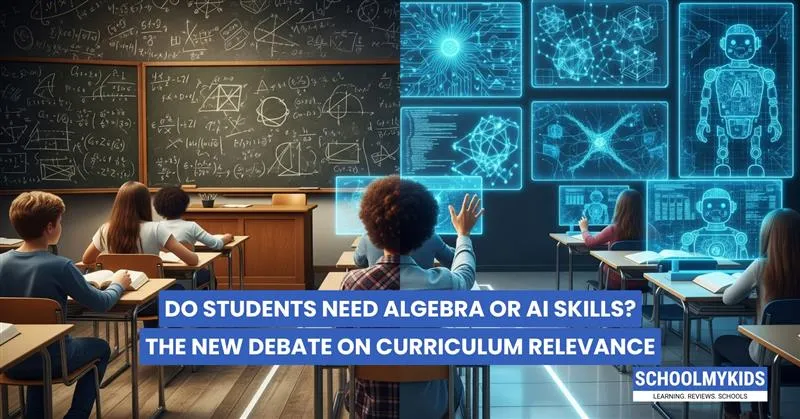Students today are caught in a new and heated debate: Should the focus be on learning traditional subjects like algebra or mastering emerging skills like artificial intelligence (AI)? This is more than just a question about math class; it’s about every part of the curriculum that feels outdated or irrelevant to day-to-day life. The answer isn’t as simple as trading algebra for AI, and the education landscape keeps shifting with each technological wave.
Why the Debate Matters
Walk into any classroom or join a family dinner, and you’ll hear this debate: Why learn algebra when an app can solve equations in seconds? Or, why not teach kids AI skills when the world is run by algorithms and robots? Adults and students alike are wondering how relevant the curriculum really is for real life.
- The job market is changing fast. Employers seek tech-savvy staff with adaptable skills.
- Society wants young people to be prepared for a future filled with unpredictable changes.
- Education systems across the globe, especially in India, the US, China, and Germany, are racing to update what is taught in schools.
Curriculum Relevance: Beyond Algebra
Algebra is just the tip of the iceberg. Across countries and schools, subjects like cursive writing, outdated coding languages, traditional biology, “by-heart learning” in history, and certain abstract math chapters are criticized as relics of the past. Curriculums created decades ago may not match today’s world of Google, AI, fast-changing technology, and global connectivity.
Many students and parents question spending months memorizing dates or practicing calculations they’ll never use. Others wonder if the time used on these subjects could be spent learning 'future skills' like communication, teamwork, coding, digital safety, personal finance, and practical science.
Why Do Outdated Subjects Stick Around?
There are a few reasons.
- Education systems move slowly, often based on tradition rather than urgent need.
- Many older subjects teach basic thinking skills in disguise. For instance, algebra may seem pointless, but it helps build problem-solving and logical thinking skills.
- Sometimes, it’s just easier for policymakers to add new content (coding, AI, soft skills) on top of old, instead of reworking everything at once.
- Some “irrelevant” subjects still have value for personal growth, even if they don’t have clear connections to the job market. Literature and art, for example, teach empathy and cultural understanding.
The Job Market and Changing Needs
Workplaces now prefer people who can adapt, collaborate, think critically, and use tech confidently. Educational institutes across the globe are shifting focus from classroom memorization to hands-on, project-centered, and digital skills lessons. Modern employers rarely ask about trigonometry or ancient history, but often look for teamwork, problem-solving, communication, and tech comfort.
Even fields like coding and data science change rapidly, as the programming language taught this year might be obsolete within a decade. This pushes educators to focus less on static content and more on teaching kids how to learn, relearn, and think for themselves.
What’s Getting Left Behind?
In many places, social studies and science have lost out as curriculums focus on exam subjects like reading and math. Lab work, experiments, civic engagement, and cultural education sometimes get sidelined. This means that students score well but lack core life skills.
How Should Education Modernize?
Experts suggest the answer isn’t to throw out all old subjects, but to ensure that everything taught in school connects to real-world needs and tomorrow’s jobs. Here’s how:
- Personalized learning: Let students choose electives, projects, and hands-on experiences that match their interests and skills.
- Integrated curriculum: Teach classic skills (math, grammar) connected to practical applications like budgeting, programming, and persuasive writing.
- Focus on skills, not rote facts: Less memorization, more creativity, communication, problem-solving, and emotional intelligence.
- Flexible subjects: Update coding, tech, and even science to reflect what’s actually used in workplaces today.
Conclusion
“What’s the point of learning algebra?” is not just about algebra or grammar. It’s about making sure every hour spent in school helps build a foundation for a changing world. Subjects aren’t fixed forever, and the most relevant lessons are those that help new generations become thinkers, problem-solvers, and lifelong learners.









Be the first one to comment on this story.